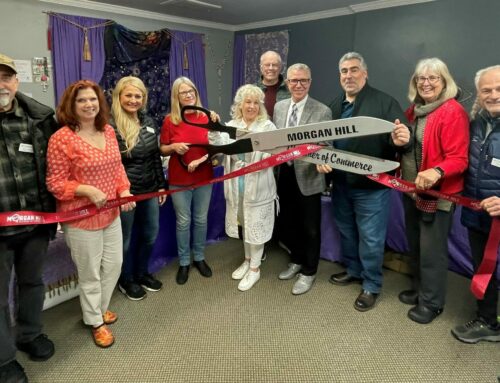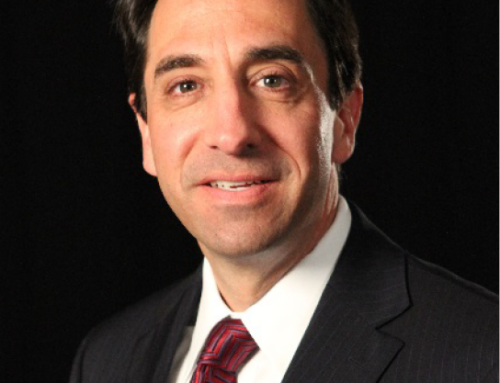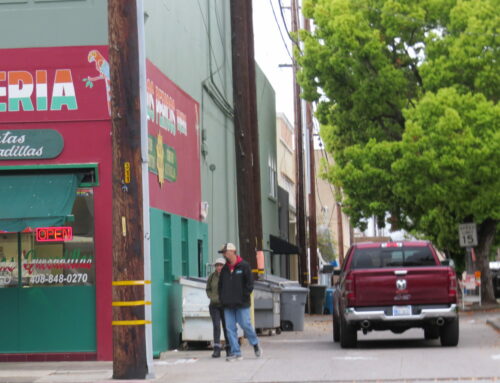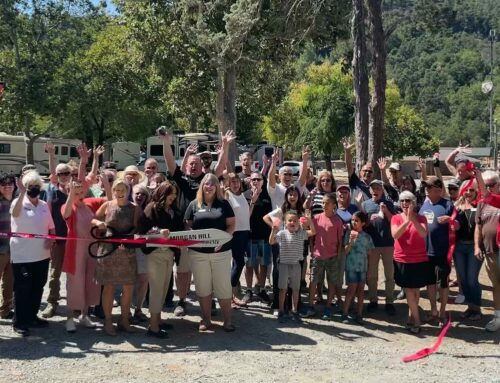Julie Lucido says she’s help remove 300 pounds of plastic since she opened her store in January
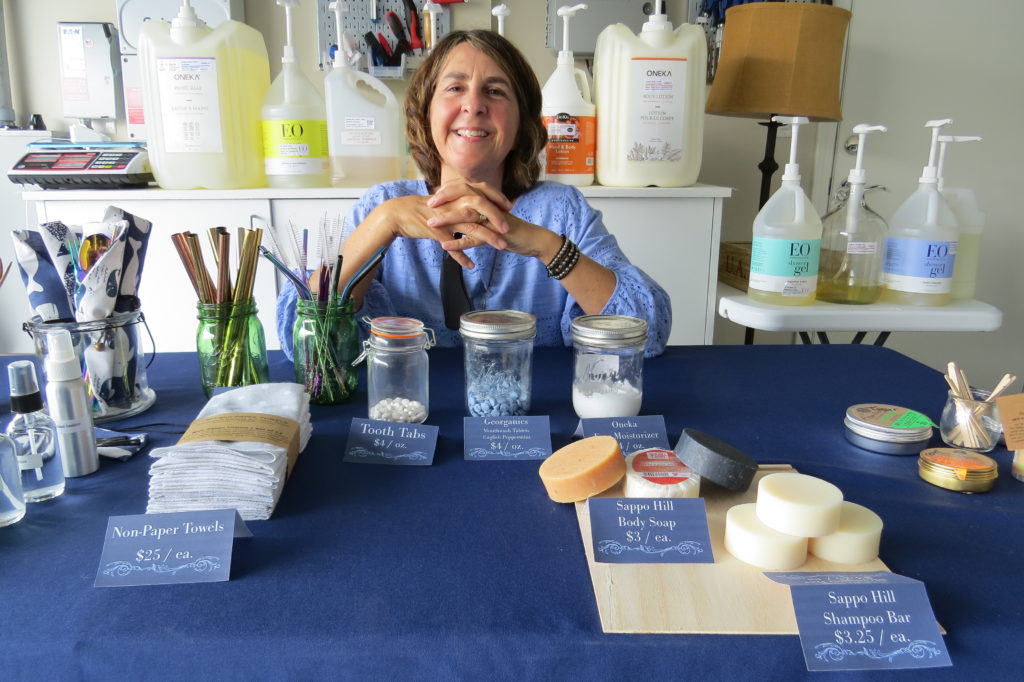
Julie Lucido in her FillerUp Shop located in her garage in northeast Morgan Hill. She sells environmentally-friendly products that are refillable, thus removing plastic from the environment.
Photo by Marty Cheek
By Robert Airoldi
In a garage in northeast Morgan Hill is a small one-person shop looking to do its part to save the environment. In January, when Julie Lucido was looking to open The FillerUp Shop she couldn’t find a small retail space in her price range. So, instead of stopping until she could find a suitable place she got a license for a home-based business and now runs the business out of her garage.
 The mission is to reduce single-use plastic and provide products that are good for your body as well as the environment.
The mission is to reduce single-use plastic and provide products that are good for your body as well as the environment.
“We carry body-care products and household cleaners along with a wide array of earth-friendly goodies such as reusable straws and produce bags,” she said.
Everything is sold by the ounce. From one to 60 ounces and from 25 cents to 60 cents an ounce depending on the product.
Her garage resembles a retail shop, with products large containers of products placed on shelves and tables. Soaps and deodorants displayed neatly on tables.
Getting products refilled is a fairly simple process. Customers make an appointment and either bring in used containers or mason jars that she will fill.
 “We are an ecologically smart shop that looks to help protect the environment,” she said. “I’m really COVID safe, just like other retail stores. I have a license and what I do is allow one household in at a time. They bring their things to refill then leave then the next person comes so it’s very safe.”
“We are an ecologically smart shop that looks to help protect the environment,” she said. “I’m really COVID safe, just like other retail stores. I have a license and what I do is allow one household in at a time. They bring their things to refill then leave then the next person comes so it’s very safe.”
Everything in her shop is plant based and can be cleaned in a stream while not harming the environment. She carries shampoos, shampoo bars, detergents, lotions, dishwasher pods, plastic-free tooth tabs — you pop in your mouth and chomp it and take wet toothbrush and brush — and plastic- free mouthwash tablets. Put one in an ounce of water and it creates a mouthwash.
“It’s a closed circle,” she said. “Nothing goes into landfill.”
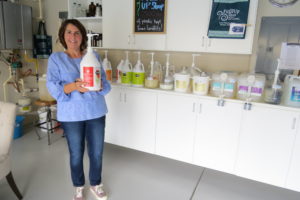 Since January, she estimates she’s taken 300 pounds of plastic out of the environment.
Since January, she estimates she’s taken 300 pounds of plastic out of the environment.
Lucido said she tries to buy products and ingredients from local companies. For instance, she makes her own hand sanitizer with medical grade alcohol that follows CDS guidelines from a company in Hollister and once purchased she can refill.
She makes her own bug spray that includes witch hazel, essential oils and aloe vera that smells really strong to keep bugs away and it works really well, she said.
She buys from a company in Los Altos and a detergent from a woman-owned company in Oakland. And there’s a movement right now to cut down on napkin and paper towel use. So she buys reusable paper towels from a woman in Gilroy that are made of flannel and are very absorbent.
Then there’s the Southern California company that makes safe sunscreen that does not harm ocean reefs.
The one-time Nordstrom elementary school teacher and salesperson for a textbook company also volunteered at the Monterey Bay Aquarium. She said before every shift there’d be a class or lesson on the environment.
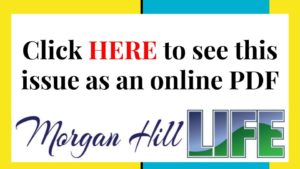 One woman told the volunteers that she was trying to go one year without plastic and she reported on her journey. She showed them an ordinary water bottle and told them it is made with petroleum and after people drinking out of them, many of the containers ends up in streams, lakes, and oceans.
One woman told the volunteers that she was trying to go one year without plastic and she reported on her journey. She showed them an ordinary water bottle and told them it is made with petroleum and after people drinking out of them, many of the containers ends up in streams, lakes, and oceans.
“That stuck with me,” she said. “Then I started noticing everything made of plastic that we use in our daily lives.”
According to the United Nations, at least 800 species worldwide are affected by marine debris, and as much as 80 percent of that litter is plastic. Up to 13 million metric tons of plastic ends up in the ocean each year — the equivalent of a rubbish or garbage truck load’s worth every minute. Fish, seabirds, sea turtles, and marine mammals can become entangled in or ingest plastic debris, causing suffocation, starvation, and drowning.
“There is kind of a push where people think you have to do zero waste,” she said. “I don’t preach that. I’m all about low waste. What can you reduce in your life? We are so programmed that we buy products, toss them in the recycle bin then do it again. What are some moves I can make to reuse or reduce?”


